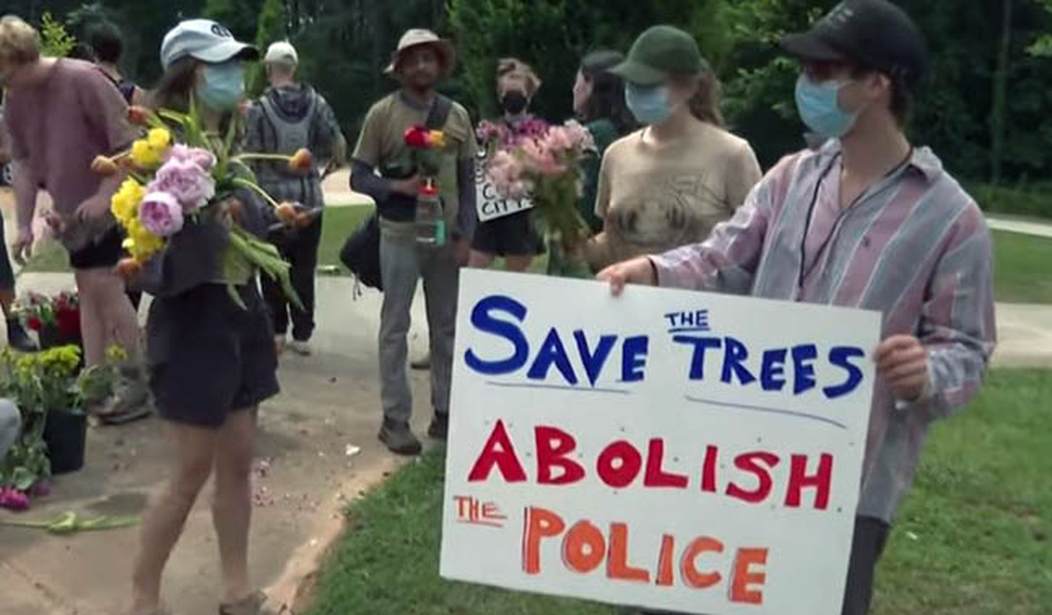Last week, activists looking to prevent the construction of an Atlanta area police training site (which the anti-police activists call ‘Cop City’) claimed they had gathered enough signatures to get their initiative on the ballot. They needed to gather about 58,000 signatures to pass muster and as of last week they had more than 70,000.
The backstory here is that the activists have lost efforts to block the construction at every turn. Their efforts to camp out in the forest to prevent construction came to a tragic end when one protester opened fire on police, sending one officer to the hospital. The shooter was then shot and killed by police. Eventually the entire area was cleared. Next, the protesters tried convincing the city council not to approve the money meant for construction. Despite a council meeting that dragged on for 16 hours, they lost the vote 11-4.
And that left them with nothing except this idea of a petition to get the question on the ballot. There is already a legal battle over whether or not a ballot initiative can undo the decision of a previous city council but that is on hold while we wait to see if a) the initiative makes it onto the ballot and b) the initiative passes.
The city council has announced a four step process for accepting and checking the signatures gathered by the activists:
- Accept the boxes of signatures and seal them in front of the activists then transfer them to a vault.
- Open the boxes and scan every page. Provide a copy of every scanned page to the activists and the media.
- Review and verify every signature. “Once individually designated and scanned, the completed lines will be reviewed to determine a) whether the name and other information present identifies and corresponds to a uniquely qualified Atlanta voter, and if so, b) whether those signatures match that of the unique voter. This will be a manual process, a line-by-line review, which will also include double-checking of each line and other quality control measures.”
- Public comment – The city won’t comment on the process while it’s underway but will take comments once the verification is complete.
But the petitioners are not happy about this, specifically with step 3 which they are now claiming is voter suppression. Because of this they decided not to turn over their signatures Monday as planned.
After announcing a plan to turn in more than 100,000 signatures Monday in an effort to put Atlanta’s controversial public safety training center on the ballot, ‘Stop Cop City’ activists now say they will hold off on turning over their petition. They say they don’t like the way the city plans to go about verifying the signatures…
“It’s an unscientific process,” said Stephanie Jackson Ali, Policy Director for voting-rights group New Georgia Project Action Fund. “The signature match process amounts specifically to voter suppression.”
“People’s signatures from different times are matched from when you first got your driver’s license to when you filled out that form,” Ali continued. “So you’re going [to] find people who mismatch their own signature.”
I don’t think I’ve ever heard of a ballot initiative campaign which doesn’t result in a check to see if signatures are authentic, duplicated or outright fake. For instance, last year there was a signature gathering effort to recall DA George Gascon. Sadly, that effort fell short because more than a third of the signatures were invalid. That included nearly 45,000 duplicate signatures and nearly 10,000 mismatched signatures.
BREAKING: The effort to recall L.A. DA @GeorgeGascon has FAILED to qualify for the ballot. The Registrar-Recorders office announced only 520,050 of the 715k+ signatures it collected were valid. It needed 566,857. Details below. @FoxNews pic.twitter.com/uoEo473QBO
— Bill Melugin (@BillMelugin_) August 15, 2022
When did verifying the count become voter suppression? The Intercept also has an article up today pushing this claim.
Voting rights advocates have previously said that such signature verification practices — described as “witchcraft” by at least one expert — serve to disenfranchise voters and can result in signatures getting thrown out on the basis of perceived minute differences or aberrations. One study, for instance, showed that 97 percent of signatures rejected under Ohio’s signature-matching law were likely authentic.
“Signature matching is a Republican-style voter suppression tactic that will disenfranchise thousands of predominantly Black and working class voters,” said DaMareo Cooper, co-executive director of the Center for Popular Democracy. “It’s clear that the City of Atlanta knows that they will lose a vote over Cop City, so now they are trying to prevent it. It’s outrageous and shameful.”
Originally, the proponents of this plan had hoped to get this on the ballot in November when nothing much was happening. Now it seems more likely it will wind up on the ballot in March for the Republican primaries. That will mean a lot more people who likely oppose this effort will be voting. I guess we’ll have to wait and see if the city council backs down in the face of this pushback. Given that the activists have a lot more signatures than they need, I’m not sure why they are so hesitant to turn them in.







Join the conversation as a VIP Member